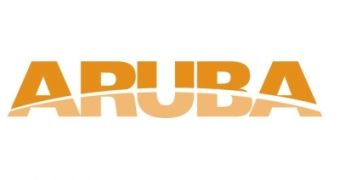Networking gear is extremely delicate, and many users get in contact with it through a thick and protective layer of glass that guard locked cabinets. At this point, nobody would ever think of smashing it with a hammer or shaking it to "death".
Home networking is extremely different from the harsh, industrial environment, with tons of blaring metal transmitting vibration along the walls. Aruba Networks has come with a new line of networking gear that is comprised of "explosion-resistant" access points to combine the versatility of professional gear and the ruggedness of industrial-ready equipments.
The access points are rigged with dual radios emitting at 200MW (antenna values) of power for wide area coverage. For instance, the AP-85 model is rated as "Zone 2" under ATEX, the explosive-atmosphere system published and maintained by the European Union. The access point can successfully operate in deep-sea oil rigs, nuclear power plants, pulp and paper mills or large-scale factories.
"These are places with harsh, demanding performance requirements, and high security needs," says Michael Tennefoss, director of strategic marketing at the Wi-Fi vendor.
Although Cisco dominates the enterprise and corporate markets with its networking products, its gear is not suitable for the harsh industrial environments, but rather for indoor enterprise wireless networks. The Aruba devices are built from ground up with resistance in mind. The units are completely waterproof, with large LED displays to inform about the device's status. They can also operate on a wide temperature range, from -22 to 131 degrees Fahrenheit. Moreover, the AP-85 access point will cover 10 kilometers over water using the regular Wi-Fi signals.
The Aruba access points can work with any 802.11 wireless standard, except for the upcoming "n" draft, because the new chips are more fragile and cannot take up the severe temperature variations. "We're definitely at the beginning of the beginning," Tennefoss adds. "It's not a saturated market, and industrial companies are looking for the right solutions."

 14 DAY TRIAL //
14 DAY TRIAL //